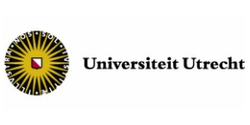Bioinformatics Postdoc at UU/WUR: Map Metabolic Interactions in the Rhizosphere
Updated: 06 Dec 2024
Are you a bioinformatician ready to start a postdoctoral fellowship to study metabolic interactions in the rhizosphere? We offer a joint position between two state-of-the-art bioinformatics research groups specialising in metabolism and metagenomics, with a shared interest in the plant-associated microbiome. The research groups are based at Utrecht University (UU) and Wageningen University & Research (WUR). Join us to work on computational approaches to study the interaction between microbes and the plant!
Your job
Plants are key to food security. Centuries of breeding has produced efficient and reliable crops, but little is known about the effects of domestication on the rhizobiome and the consequences for plant resilience to stress and disease. Ground-breaking experimental and computational approaches are opening up new possibilities to study the interactions between microbes and the plant. How does the plant recruit its microbiome and how do microbes colonise the roots?
As a postdoctoral researcher, you will contribute to developing and applying innovative computational approaches for analyzing primary and secondary metabolic traits in large genomic and metagenomic datasets from plant microbiomes. This will help elucidate how plants are able to recruit microbiomes with specific functions, and to design synthetic microbial communities to test the hypotheses resulting from these analyses. You will also collaborate with, co-supervise, and provide training for consortium partners, for example to interpret large metagenomic, metatranscriptomics and metabolomic datasets. This collaborative effort aims to advance our understanding of plant microbiomes. Together with other consortium members, our overall aim is to understand the role of microbial and plant metabolic interactions in shaping the rhizobiome, the response stress, and the microbial contributions to crop resilience in the face of a changing climate.
You will join an interdisciplinary and international team consisting of computational biologists and bioinformaticians at Utrecht University (UU) and Wageningen University & Research (WUR). This collaboration is part of MICROP, a government-funded research programme in the Netherlands that includes world-leading research institutes and private partners. You will benefit from interactions with a vibrant community of PhD candidates and postdocs who will jointly work on this topic, as well as from the rich datasets available within the consortium. The programme builds on and fosters many national and international collaborations with researchers studying plant and microbial metabolism, biotechnology, and (meta-) genomics.
You will be a member of two leading research groups: the Theoretical Biology & Bioinformatics group at UU and the Bioinformatics group at WUR. Your employment contract will be with UU, but the position involves close collaboration with WUR, ensuring active engagement with both teams.
Requirements:
To excel in this role, you bring:
- a strong scientific profile with a relevant focus;
- experience with turning big data into knowledge;
- demonstrated experience with translating bioinformatics to experiments and vice versa;
- strong communication skills to ensure effective collaboration with consortium partners and smooth teamwork;
- a PhD degree where computational analyses played a central role.
Salary Benefits:
We offer:
- collaboration with a great team and a large scientific consortium;
- necessary support on all aspects of the project;
- a full-time position for four years - initially a one-year contract with an extension for three more years after positive evaluation (part-time appointment of 0.8 - 1.0 FTE can be discussed);
- a gross monthly salary between €3,378 and €5,331 in the case of full-time employment (salary scale 10 under the Collective Labour Agreement for Dutch Universities (CAO NU));
- 8% holiday pay and 8.3% year-end bonus;
- a pension scheme, partially paid parental leave and flexible terms of employment based on the CAO NU.
In addition to the terms of employment laid down in the CAO NU, Utrecht University has a number of schemes and facilities of its own for employees. This includes schemes facilitating professional development, leave schemes and schemes for sports and cultural activities, as well as discounts on software and other IT products. We also offer access to additional employee benefits through our Terms of Employment Options Model. In this way, we encourage our employees to continue to invest in their growth. For more information, please visit Working at Utrecht University.
32 - 40 hours per week
Padualaan 8

